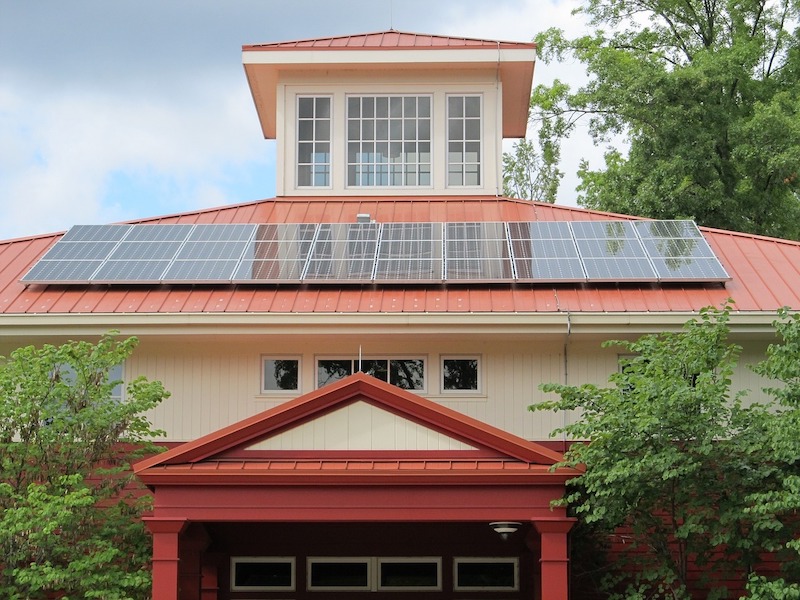The U.S. Department of Commerce tentatively agreed to assess tariffs of up to 35% on solar equipment, a move that could slow the rapid growth of the domestic solar power industry. SolarWorld, a German company with a U.S. base is in Oregon, requested the tariffs, claiming China unfairly subsidizes its solar manufacturers.
Solar panel installers, on the other hand, are opposed to tariffs. These companies have boomed as panel prices have fallen 70 percent since the start of 2010. Tariffs, they say, will make solar power less affordable.
SolarWorld made a similar complaint to U.S. trade officials in 2011. The next year, the Commerce Department imposed duties averaging 31% on Chinese solar cells. Many Chinese companies responded by taking cells made in other countries, assembling them into panels in China, and shipping them to the U.S. to sidestep the tariffs.
Many solar power industry insiders are holding out hope that SolarWorld and the Chinese can work out a settlement.
(http://www.sfgate.com/business/article/Tariffs-could-dim-solar-energy-s-rapid-growth-5538030.php)
Related Stories
Codes and Standards | Mar 16, 2021
Massachusetts bill would mandate rooftop solar on new homes, commercial buildings
Proposed Bay State mandate modeled on California’s.
Codes and Standards | Mar 15, 2021
Nevada may create areas for tech companies to form own governments
Legislation calls for ‘Innovation Zones’ that could become smart cities.
Codes and Standards | Mar 11, 2021
Los Angeles commits to carbon-free city buildings
City will take into account embedded carbon when contracting to buy construction products.
Codes and Standards | Mar 10, 2021
‘Smart retrofitting’ will be crucial to net zero aspirations
AI, analytical software, Internet of Things are keys to decarbonization of built environment.
Codes and Standards | Mar 9, 2021
Salt Lake City is first jurisdiction to adopt new standards for off-site construction
Code Council and Modular Building Institute developing standards and compliance protocols.
Codes and Standards | Mar 8, 2021
Hyperlocal zoning could spur more affordable housing construction
Letting blocks and streets pass their own rules could have impact.
Codes and Standards | Mar 5, 2021
Biden builds on Trump’s “Buy American” order
New administration extends preferences for domestic construction materials.
Codes and Standards | Mar 4, 2021
Biden administration overturns Trump’s federal building design mandate
Previous order promoted classical and “traditional” architecture above others.
Codes and Standards | Mar 3, 2021
Texas freeze raises questions about risks of electrifying buildings
Gas stoves helped residents cook, boil water when power went out.
Codes and Standards | Mar 2, 2021
New Seattle building code eliminates fossil fuels for most space and water heating
Also increases on-site solar photovoltaics, reduces envelope heat loss, air leakage, and interior lighting power allowances.

















